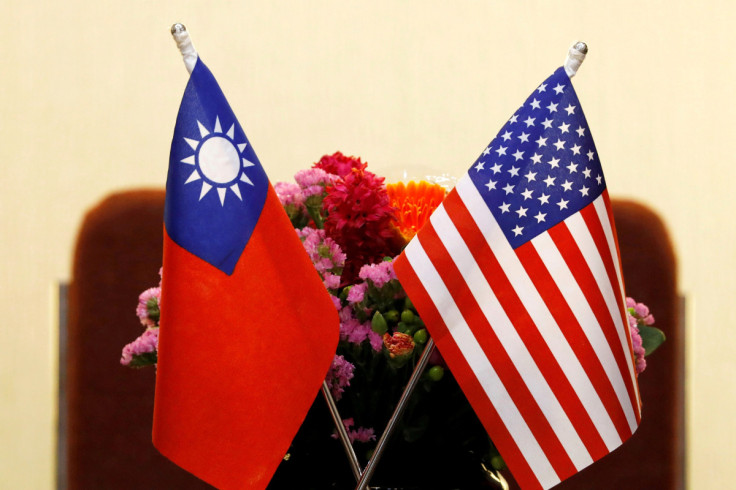China Slams US For Selling Arms To Taiwan, Warns Against Escalating Tension
KEY POINTS
- The U.S. House of Representatives passed an $858 billion defense bill Thursday
- Of the total, $10 billion will be used to fund the provision of weapons to Taiwan
- Earlier in the week, a $330 million sale of aircraft parts and equipment was also approved by the U.S.
The United States was slammed by China for passing an $858 billion defense bill that include $10 billion to fund the provision of weapons to Taiwan.
Chinese Defense Ministry spokesman Tan Kefei said Thursday that Washington is escalating tensions between China and Taiwan with its actions.
Tan said the U.S. has been escalating the situation by repeatedly violating the one-China principle, selling arms and sending its officials to Taiwan despite warnings.
"In recent years, on the one hand, the U.S. has made serious commitments to China on the Taiwan question, while, on the other hand, was eroding the one-China principle, continuing arms sales to Taiwan, introducing negative bills related to Taiwan and sending senior officials to visit Taiwan, further aggravating tensions across the Taiwan Straits," Tan said in a statement, as quoted by the defense ministry, Eurasian Times reported.
A $330 million sale of aircraft parts and equipment was also approved this week by the U.S. to Taiwan after the former received requests for extra equipment for its C-130 fighter jets, F-16, and other planes.
Tan urged the U.S. to stop intervening in matters between China and Beijing, as it may lead to further tensions between the two countries and "eventually draw fire against the U.S. itself."
The already strained relationship between the U.S. and China had worsened after House Speaker Nancy Pelosi visited Taiwan in early August. In response, Beijing had carried out large-scale military exercises near Taiwan, after condemning the visit.
At the time, China warned the U.S. saying its government will hold Washington responsible for any developments that would hurt Beijing's sovereignty.
"What I can tell you is that the U.S. will be held liable and pay the price for hurting China's sovereignty and security interests," Chinese foreign ministry spokesperson Hua Chunying said at the time.
Pelosi's visit was seen by Beijing as "a serious violation of the one-China principle."
"It has a severe impact on the political foundation of China-U.S. relations, and seriously infringes upon China's sovereignty and territorial integrity," according to the statement. "It gravely undermines peace and stability across the Taiwan Strait, and sends a seriously wrong signal to the separatist forces for 'Taiwan independence'."
Taiwan considers itself an independent country, with its own constitution and democratically-elected leaders. However, China sees it as a breakaway province that will eventually be part of the country again.

- Taiwan: US Aims To Transform Military Posture To Deter China, Impose Costs
- U.S. House Overwhelmingly Approves Bill Backing Record Military Spending
© Copyright IBTimes 2024. All rights reserved.




















